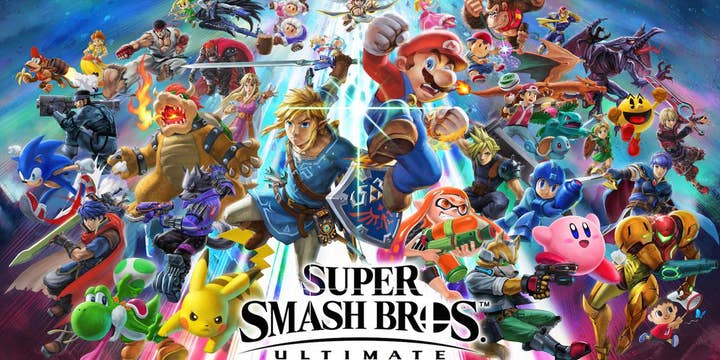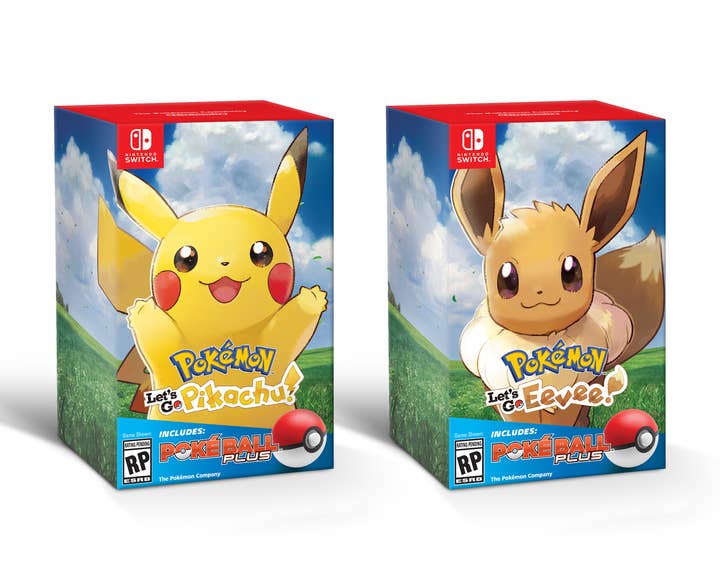Is Nintendo Switch in trouble?
After a slight E3 showcase, investors and analysts are concerned over Switch sales. But are they right?
Nintendo's share price falling after it shows something significant is not unheard of. In fact, it's almost the norm. And after the Smash Bros-focused Nintendo Direct yesterday, the company's share price dipped 6 per cent to its lowest point this year.
That isn't necessarily significant - not yet anyway - but it wasn't just investors who were disappointed. Certain analysts have also expressed concerns, with Niko Partners suggesting doubt on Nintendo's ability to sell-in 20 million consoles and 100 million games during its current financial year.
In order to hit these targets, Nintendo needs to broaden the appeal of Switch, which it hopes to do with the more mainstream Pokémon Let's Go titles, Super Mario Party and Fortnite. Yet critics remain sceptical.
Why are analysts concerned?
"Smash Bros. remains firmly targeted at Nintendo's core fans, and not the more mainstream consumer it needs to attract"
Nintendo focused 25 minutes of its E3 showcase on Super Smash Bros. This game is a big deal - the previous five in the series have sold a combined 40.5 million units and are amongst the best-sellers on all of Nintendo's games consoles (post-N64).
Yet Smash Bros. remains firmly targeted at Nintendo's core fans, and not the more mainstream consumer it needs to attract. An early December release date also limits the pre-Christmas sales window, and means the game won't arrive alongside Switch's new online subscription service in September.
The rest of the showcase did feature more mainstream fare, with the main Nintendo product being Super Mario Party. This game is due in October and generated some decent buzz at E3, but Mario Party has been an inconsistent series for Nintendo over its 20 year history. The pressure is therefore on the new Pokémon games to help increase the console's reach.

Another concern centres on the Switch's recent performance. After dominating 2017 with numerous blockbusters, this year has been quieter for Nintendo. There has been a strong run of releases (Bayonetta, Kirby, Hyrule Warriors and Donkey Kong amongst them), but they've been primarily targeted at the existing audience. Nintendo's big bet has been Labo - the edutainment property designed to inspire children to create things and mess around with the Switch technology - but despite a strong critical reception the high cost of the product (and the console required to play it) has had a negative impact on its commercial performance.
Finally, despite strong first year sales, third-party support remains lacking. Fortnite aside, E3 was notable for the lack of Switch games from the big publishers, including Nintendo favourites like Ubisoft.
Are analysts right to be concerned?

Analysts, investors and the media base predictions on the information presented to them, and based on what was on offer at E3, there is a reason to be cautious.
But there's certainly nothing to panic over. Games don't get much bigger than Smash Bros., Pokémon and Fortnite, and the fact that the first two are out before Christmas - even if it's a bit late in the year - is still likely to result in strong software (and hardware) sales.
In addition, unlike Microsoft and Sony - which tend to use E3 to showcase their line-up for the next 12 to 24 months - Nintendo doesn't rely on E3 to communicate with its audience. If you include the Pokémon reveal, there have been five Switch-related 'announcement events' this year so far. Nintendo is paranoid about its competitors stealing its ideas, so it frequently leaves small gaps between announcement and release. Nintendo Labo, for instance, was announced in January and launched in April.
"There's plenty of time and opportunity to course correct... if, of course, it needs to"
I would be surprised if there were any really significant Switch products to be announced for 2018, but there will likely be a few third-party games and maybe even some Wii U ports still to emerge for a quick release. Last year, Doom was revealed in September and on the market by November, and Nintendo loves an 'available now' surprise in its livestreams. We can reasonably expect the 2018 release schedule to bulk up a little bit before the Q4 sales window begins.
Finally, it's not all about new games. Switch has a strong line-up of software already, with Splatoon 2, Mario Kart 8 Deluxe, Super Mario Odyssey and The Legend of Zelda: Breath of the Wild. These games remain in the charts and continue to receive digital updates.
Unlike with Wii U, where the games took too long to arrive, Nintendo has many of the tools it needs to sell consoles already. If necessary, it could pull together some attractive game bundles - or even drop the price of the hardware - to stimulate extra interest. A Switch with a free copy of Mario Odyssey or Splatoon 2 would likely perform very strongly during the summer months.
But there's no need to do anything yet. It's still very early in the financial year, and in a quarter not known for strong game sales. Nintendo has been marketing its products heavily during May, and can evaluate its position better once Mario Tennis Aces and the new expansions for Splatoon 2 and Mario + Rabbids hit the market later this month.
In other words, analysts and investors are understandably wary after Nintendo's E3 performance. But there's plenty of time and opportunity to course correct... if, of course, it needs to.
